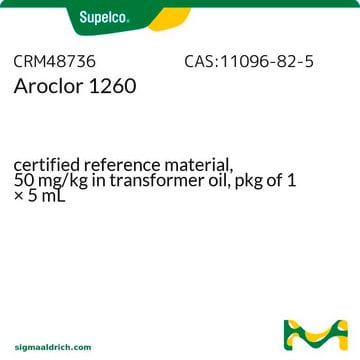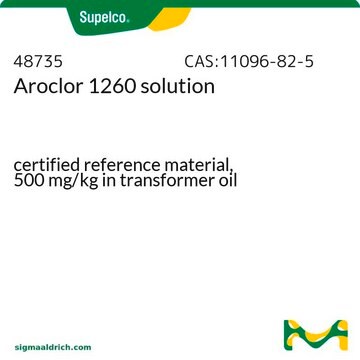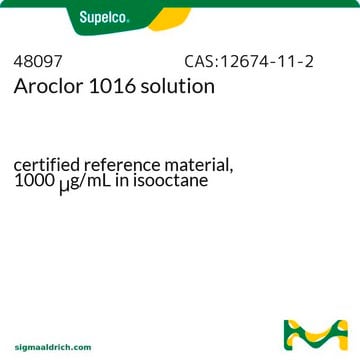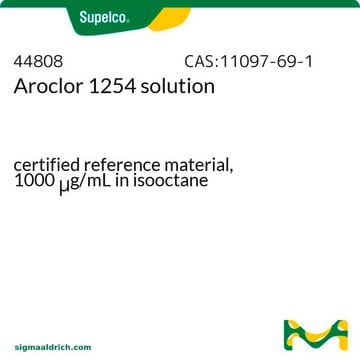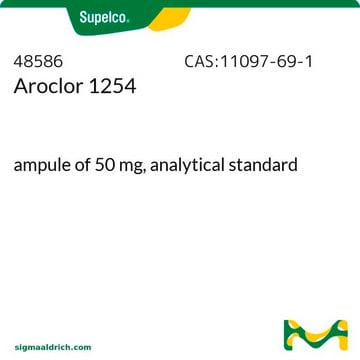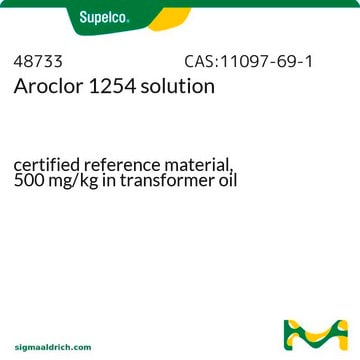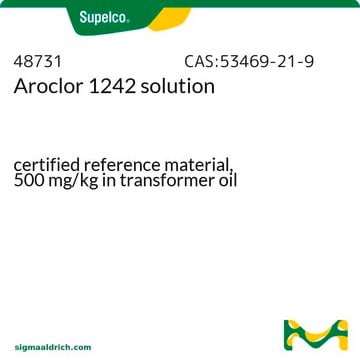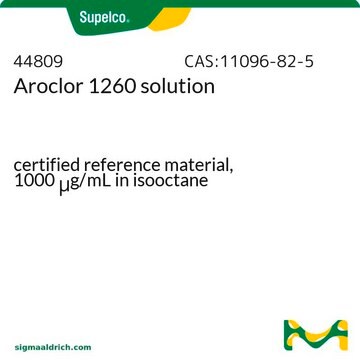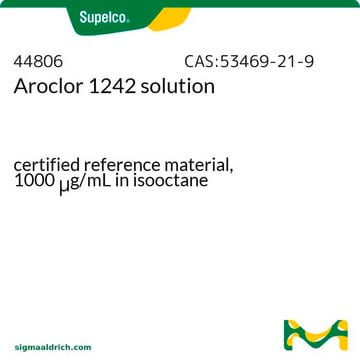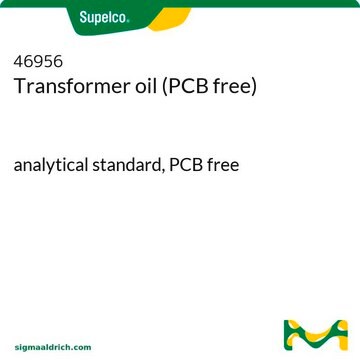48734
Aroclor 1254 solution
certified reference material, 50 mg/kg in transformer oil
About This Item
Recommended Products
grade
certified reference material
TraceCERT®
product line
TraceCERT®
CofA
current certificate can be downloaded
packaging
ampule of 5 mL
concentration
50 mg/kg in transformer oil
technique(s)
HPLC: suitable
gas chromatography (GC): suitable
application(s)
environmental
format
single component solution
storage temp.
2-30°C
InChI
1S/C12H5Cl5/c13-8-3-1-2-6(10(8)15)7-4-5-9(14)12(17)11(7)16/h1-5H
InChI key
AUGNBQPSMWGAJE-UHFFFAOYSA-N
Looking for similar products? Visit Product Comparison Guide
Application
Other Notes
Legal Information
Signal Word
Danger
Hazard Statements
Precautionary Statements
Hazard Classifications
Aquatic Chronic 2 - Carc. 1B - STOT RE 2
Storage Class Code
6.1C - Combustible, acute toxic Cat.3 / toxic compounds or compounds which causing chronic effects
WGK
WGK 3
Flash Point(F)
Not applicable
Flash Point(C)
Not applicable
Personal Protective Equipment
Choose from one of the most recent versions:
Already Own This Product?
Find documentation for the products that you have recently purchased in the Document Library.
Customers Also Viewed
Our team of scientists has experience in all areas of research including Life Science, Material Science, Chemical Synthesis, Chromatography, Analytical and many others.
Contact Technical Service
